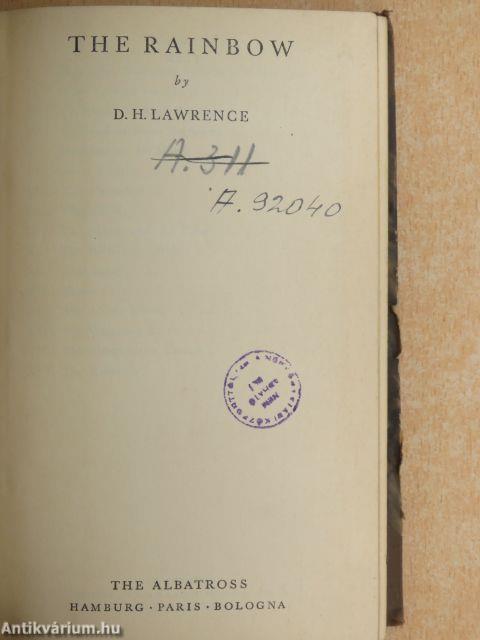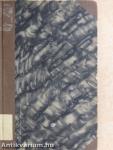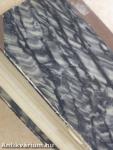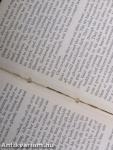1.067.317
kiadvánnyal nyújtjuk Magyarország legnagyobb antikvár könyv-kínálatát

VISSZA
A TETEJÉRE
JAVASLATOKÉszre-
vételek
The Rainbow
| Kiadó: | The Albatross |
|---|---|
| Kiadás helye: | Hamburg-Paris-Bologna |
| Kiadás éve: | |
| Kötés típusa: | Könyvkötői kötés |
| Oldalszám: | 478 oldal |
| Sorozatcím: | |
| Kötetszám: | |
| Nyelv: | Angol |
| Méret: | 18 cm x 12 cm |
| ISBN: | |
naponta értesítjük a beérkező friss
kiadványokról
naponta értesítjük a beérkező friss
kiadványokról
Előszó
CHAPTER ONE
HOW TOM BRANGWEN MARRIED A POLISH LADY
the brangwens had lived for generations on the Marsh Farm, in the meadows where the Erewash twisted sluggishly through alder trees, separating... Tovább
Előszó
CHAPTER ONE
HOW TOM BRANGWEN MARRIED A POLISH LADY
the brangwens had lived for generations on the Marsh Farm, in the meadows where the Erewash twisted sluggishly through alder trees, separating Derbyshire from Nottinghamshire. Two miles away, a church-tower stood on a hill, the houses of the little country town climbing assiduously up to it. Whenever one of the Brangwens in the fields lifted his head from his work, he saw the church-tower at Ilkeston in the empty sky. So that, as he turned again to the horizontal land, he was aware of something standing above him and beyond him in the distance.
There was a look in the eyes of the Brangwens as if they were expecting something unknown, about which they were eager. They had that air of readiness for what would come to them, a kind of surety, an expectancy, the look of an inheritor.
They were fresh, blond, slow-speaking people, revealing themselves plainly, but slowly, so that one could watch the change in their eyes from laughter to anger, blue, lit-up laughter, to a hard blue-staring anger; through all the irresolute stages of the sky when the weather is changing.
Living on rich land, on their own land, near to a growing town, they had forgotten what it was to be in straitened circumstances. They had never become rich, because there were always children, and the patrimony was divided every time. But always, at the Marsh, there was ample.
So the Brangwens came and went without fear of necessity, working hard because of the life that was in them, not for want of the money. Neither were they thriftless. They were aware of the last halfpenny, and instinct made them not waste the peeling of their apple, for it would help to feed the cattle. But heaven and earth was teeming around them, and how should this cease ? They felt the rush of the sap in spring, they knew the wave which cannot halt, but every year throws forward the seed to begetting, and, falling back, leaves the young-born on the earth. They knew the intercourse between heaven and earth, sunshine drawn into the
i'l I
i'/v''."'
Ml,
1/ ?' ¦
1/
h
f' i.," ^ ¦ I, rr ^ .
1/
Sf-^lhi! i.l'n'
I Í.'' Vissza
Tartalom
CONTENTS PAGE
I. How Tom Brangwen Married a Polish Lady 7
II. They Live at the Marsh 49
III. Childhood of Anna Lensky 80
IV. Girlhood of Anna Brangwen 95
V. Wedding at the Marsh 129
VI. Anna Victrix 139
VII. The Cathedral 191
VIII. The Child 205
IX. The Marsh and the Flood 233
X. The Widening Circle 253
XI. First Love 274
XII. 323
XIII. The Man's World 342
XIV. The Widening Circle 400
XV. The Bitterness of Ecstasy 414
XVI. The Rainbow 467
Témakörök
- Idegennyelv > Idegennyelvű könyvek > Angol > Szépirodalom > Regény, novella, elbeszélés
- Szépirodalom > Regény, novella, elbeszélés > Az író származása szerint > Európa > Nagy-Britannia
- Szépirodalom > Regény, novella, elbeszélés > Tartalom szerint > Családregények
- Szépirodalom > Regény, novella, elbeszélés > Tartalom szerint > Lélektani regények
- Szépirodalom > Regény, novella, elbeszélés > Tartalom szerint > Életrajzi regények > Önéletrajzok, naplók, memoárok










